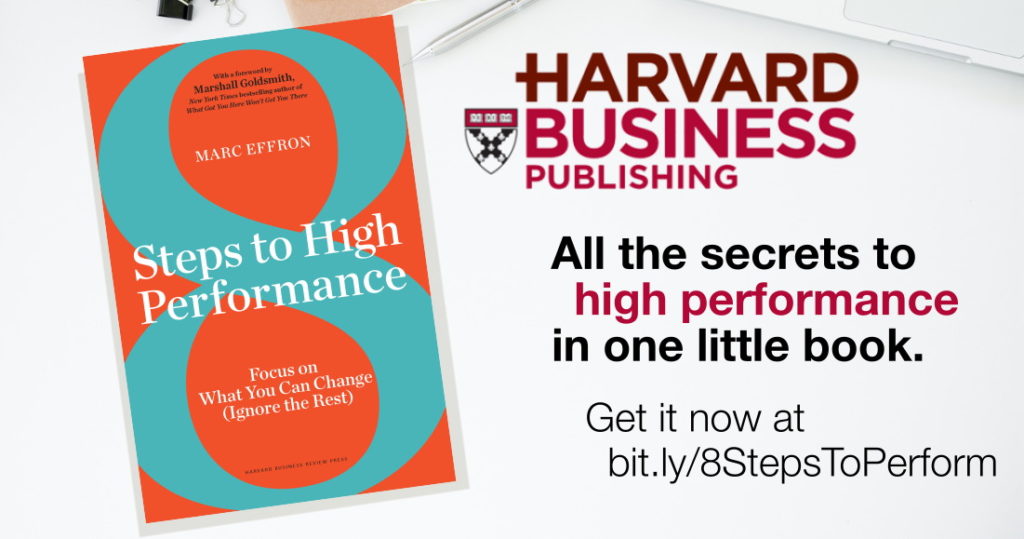Please enter your email in order to download this publication.
(This article was originally published in Entrepreneur magazine in 2019)
There’s an insidious set of forces working against your being a high performer. It’s not your jerk of a boss, the local cantina that starts happy hour at 2 p.m. or your inexplicably slow wireless connection.
It’s a combination of click-bait misdirection (e.g. The 4 Hour Work Week), dubious research promoted by travel associations and well-meaning advocates of better work-life balance, who each tell you that working more hours is detrimental to your health.
It might help to know that Tim Ferriss, author of The 4-Hour Work Week, typically works 60 hours a week or more, articles in Harvard Business Review like “The Data-Driven Case for Vacation” are funded by the U.S. Travel Association and research shows that being more engaged with work actually limits negative health effects.
The cold, hard truth is that high performers work harder and put in longer hours than those who perform at lower levels. When I say this to audiences, it inevitably leads to someone making the statement, “I’m really efficient at work. I get as much done in 40 hours as others do in 50 hours or more.”
That may be true but, if you want to be a high performer, it’s absolutely irrelevant for five reasons:
1. You’ve set the wrong bar.
We all know someone who’s grossly inefficient at their job, but that person shouldn’t be your reference standard for high performance. How much smarter do you work than someone who’s more like you – skilled, bright and motivated?
After setting that more appropriate bar, do you still have such a large “smart, not hard” advantage? Given that most of us are woefully unable to assess our own performance or behaviors, the accuracy of self-assessments like this are highly questionable.
2. You’re missing (more than) half the picture.
The “smart, not hard” crowd often says, “I’m more efficient because I don’t waste time socializing and gossiping” or “I work from home to be more efficient.” Well, there’s a reason that IBM recently told its remote workers to report to the office, Facebook pays employees to live close to its office and very few people at Google telecommute. In-person social interaction breeds stronger relationships, better collaboration and faster innovation.
Slack, Skype and similar tools don’t build the important social relationships – they make communication and collaboration more efficient. If you’re not spending time at work consciously building stronger relationships, your increased efficiency won’t translate to your being seen as a high performer.
3. You’re still just an average performer.
This fact seems to annoy the “smart, not hard” crowd more than any other fact. If you accomplish the same amount of work in less time than your coworker, you’re not a high performer – you’re merely efficient.
You haven’t delivered anything more than an average performer. You’re just a fast, average performer. At bonus time, you and your slow co-worker will get the exact same bonus because you’ve delivered the exact same results.
Being efficient is great, but you still must do more, better than others to be a high performer.
4. Your performance is always relative.
It’s not just your own performance that makes you a high performer, but how your performance compares to others. Let’s assume that you and Susie have similar sales territories and identical products to sell. You hit 125 percent of your goal. Great job! Susie hits 150 percent of her goal. You had a great year, but Susie had a better year – she’s a higher performer.
Your efficient style is wonderful, but you’ll be evaluated not just for what you deliver but also how it relates to others’ performance. This brings up the most critical point of all:
5. More hours, up to a point, simply produce more results.
High performers typically work more hours than average performers. Simple logic explains why. If two equally skilled and motivated people engage in an activity and one person spends 25 percent more time on it, that person will produce more results, on average.
The additional time they invest at work creates a virtuous cycle. More work means more learning has occurred, so that person becomes more capable and potentially a better contributor in the future. Her higher performance from her additional hours becomes known in the organization, so she receives additional opportunities to show her skills.
She might get more exposure to senior leaders who can serve as sponsors or mentors. Her success isn’t guaranteed because she’s put in more hours, but she will be more likely to succeed than those who work fewer hours.
But aren’t longer hours at work clearly linked to bad health outcomes?
No. Some people who work more hours may choose not to eat properly, get enough sleep or exercise. Those choices can lead to various disease states, but so can engaging in those behaviors without working hard.
In other words, eating too much food and not exercising will make you fatter, whether you work a few hours or many hours. In fact, a recent experiment showed that it was an attitude of workaholism, not the number of hours worked, that led to poor health outcomes.
Those who worked long hours and didn’t constantly stress about work actually had better health outcomes than those obsessed about work but put in fewer hours!
Don’t Worry, Work Harder
The good news is that you can live a happy, healthy, wonderfully fulfilling life without being a high performer. But the hard truth is that hours matter if you want to be a high performer at work.
The benefits of high performance– more pay, more learning, more promotions –will come from the additional hours that increase your output, learning, network and reputation. Working smart is great, but it’s working hard that matters.
More About The Author
Marc Effron, President, Talent Strategy Group
Marc founded and leads The Talent Strategy Group and consults globally to the world’s largest and most successful corporations. He co-founded the Talent Management Institute and created and publishes TalentQ magazine. He co-authored the Harvard Business Review Publishing best-sellers One Page Talent Management and 8 Steps to High Performance.
Please reach out to us with any questions, and we will be more than happy to get back to you!


